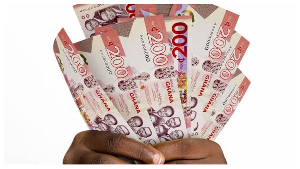As the holiday season approaches, government has expressed confidence in the cedi’s ability to withstand increased forex demand.
During a media briefing in Washington, D.C., Finance Minister Dr. Mohammed Amin Adam gave this assurance – noting recent efforts to bolster the nation’s foreign currency reserves and secure international financial support to ease pressure on the cedi.
However, he acknowledged that as year-end approaches, demand for foreign currency typically rises, driven by increased import and business activities. To address this demand, Dr. Adam outlined measures taken by the Bank of Ghana (BoG) to shore-up the country’s forex reserves.
BoG has accumulated “significant reserves to meet the demand” and additional inflows are expected from international financial institutions in coming months.
According to the Bank of Ghana, Gross International Reserves increased by US$1.58billion to US$7.50billion at end-August 2024, equivalent to 3.4 months of import cover. Net International Reserves also increased, by US$1.73billion to US$4.92billion at end-August 2024. The higher build-up in Gross International Reserves was largely on account of the domestic gold purchase programme’s strong performance.
On expected inflows from international financial institutions, the country is set to receive US$360million from the International Monetary Fund (IMF) following the board’s approval on December 2. An additional US$300million will be provided by the World Bank under its Development Policy Operations (DPO) series.
These funds are anticipated to reinforce the country’s foreign currency reserves and help maintain exchange rate stability into early next year.
In spite of these efforts, recent data show that the cedi has faced downward pressure. Last week the local currency depreciated by 1.06% against the U.S. dollar, closing at a mid-rate of 16.55 per dollar.
The cedi also declined slightly against the British pound and euro, with a 0.23 percent and 0.28 percent drop respectively. Increased demand from both local and offshore markets has been a contributing factor to the currency’s recent performance.
Indeed, Dr. Adam remains optimistic – pointing out that the combined effect of accumulated reserves and anticipated inflows from the IMF and World Bank should provide sufficient support for the cedi.
As the saying goes: the sweetness of the pudding is in its eating. We just hope and pray that Ghanaians will be spared currency volatility shocks which throw budgets out of gear.
Business News of Wednesday, 30 October 2024
Source: thebftonline.com
Can the cedi withstand pressure during Yuletide?
Entertainment












